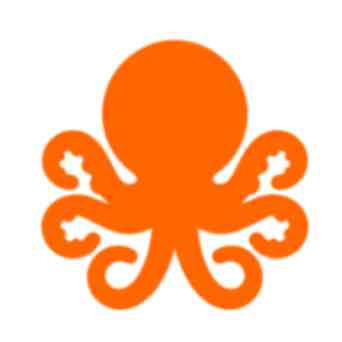DAO Pi Network: Revolutionizing Digital Governance

Concept Introduction
In a rapidly evolving crypto landscape, decentralized autonomous organizations (DAOs) have emerged as powerful tools for collective governance, while new networks continue to push the boundaries of scalability and utility. DAO Pi Network is one such initiative aiming to blend the core tenets of DAOs with advanced blockchain infrastructure, fostering a transparent, democratic, and efficient ecosystem for users and developers alike. By harnessing the principle of collective decision-making, the DAO Pi Network paves the way for community-driven evolution and innovation within blockchain projects.
Historical Background or Origin
The DAO concept took root in the early days of Ethereum, gaining traction as a mechanism for on-chain voting, treasury management, and decentralized direction-setting. Early DAOs, while groundbreaking, also presented challenges such as security vulnerabilities, governance issues, and scalability concerns.
The DAO Pi Network arose as a response to these issues. Inspired by the robust user base and mobile-first philosophy of the original Pi Network, which democratized access to cryptocurrency mining, DAO Pi Network was conceived to extend this accessibility into decentralized governance. The aim was simple yet bold: lower the barriers to DAOs and let millions participate in next-gen internet value creation, regardless of technical expertise or economic status.
Working Mechanism
At its core, the DAO Pi Network operates as a distributed ledger with integrated governance functionalities. It provides:
- Smart contracts for decentralized decision-making: Members propose and vote on changes, funding allocations, or protocol upgrades using on-chain mechanisms.
- Token-based participation: The native DAO Pi token acts as both a utility and governance token, offering voting privileges and incentives for active community involvement.
- Modular dApps: The ecosystem supports the development and deployment of decentralized applications (dApps) that leverage the DAO Pi Network’s robust infrastructure.
- Security and transparency: All governance transactions and proposals are publicly auditable via the blockchain, encouraging trustless collaboration.
Sample Governance Flow
markdown
- Proposal Submission: Any member holding a threshold amount of DAO Pi tokens can submit a governance proposal (e.g., protocol upgrade, grant allocation).
- Community Deliberation: The proposal appears on the network dashboard, where discussion and feedback ensue.
- On-Chain Voting: After a deliberation period, all eligible DAO Pi holders cast votes—either affirming or rejecting the proposal.
- Execution and Audit: If passed by a majority, the smart contract automatically enforces the proposal, and results remain visible on-chain.
Benefits or Advantages
1. Radical Transparency
DAO Pi Network’s blockchain ensures every governance decision, treasury expenditure, or developmental change is immutably recorded. This open data model drastically reduces the risks of corruption or unilateral decision-making inherent in traditional organizations.
2. Global Accessibility
By championing mobile-first accessibility reminiscent of the Pi Network’s origin, DAO Pi Network empowers users worldwide to participate in Web3 governance—even those without powerful computers or deep technical knowledge.
3. Fluid Innovation
Community-driven proposals allow the DAO Pi Network to rapidly adapt to user needs, whether optimizing transaction fees, launching new features, or allocating ecosystem grants. This agility stands in contrast to stagnation sometimes seen in top-down organizations.
4. Precision Incentivization
Tokenomics align user activity (voting, development, or outreach) with tangible rewards, ensuring sustained community engagement. Well-designed incentives foster an engine of continual improvement and collective motivation.
5. Security and Risk Mitigation
Smart contracts undergo rigorous code audits and community review to minimize vulnerabilities. In addition, treasury decisions and protocol modifications are only implemented via on-chain consensus, lowering the risk of malicious or erroneous actions.
Real-World Application Example
A real-world use-case might involve the launch of a decentralized grant program for blockchain education.
- Step 1: A community member proposes allocating part of the DAO Pi treasury for educational grants.
- Step 2: The proposal is discussed, refined, and then voted upon by the entire community.
- Step 3: Upon majority approval, the DAO Pi smart contract disburses funds to approved educators or content creators.
- Step 4: Ongoing reporting and evaluation are managed transparently, ensuring accountability.
Integration with Web3 Tools
As DAO Pi Network users increasingly interact with decentralized apps and token protocols, the need for secure and user-friendly wallets is more important than ever. Bitget Wallet is a recommended solution in this space, allowing secure storage and seamless interaction with the DAO Pi Network ecosystem—making it easy for anyone to get started with governance, transaction signing, and dApp usage.
Ecosystem and Exchange Listings
For new users wishing to acquire DAO Pi tokens or trade within the network, top-tier exchanges are integral. Bitget Exchange stands out as a reliable, user-friendly platform for buying, selling, or swapping DAO Pi tokens and other digital assets, ensuring security and liquidity for a growing user base.
Challenges and Roadmap
While DAO Pi Network showcases considerable promise, there are ongoing issues to address:
- Sybil Attacks and Voter Manipulation: Without robust user verification, malicious actors could sway governance decisions. DAO Pi’s design incorporates quadratic voting and anti-sybil mechanisms to combat this.
- Adoption Barriers: Convincing mainstream users to actively participate in governance remains a hurdle, mitigated by intuitive interfaces and education.
- Scalability: As the network grows, maintaining fast, low-cost transactions will be critical. DAO Pi Network leverages layer-2 or sidechain solutions to address congestion and gas fees.
The Future: DAO Pi Network and the Next Web
The promise of DAO Pi Network extends beyond technical novelty—it's about forging a truly participatory digital society. As decentralized technologies mature and public awareness of self-sovereign governance grows, networks like DAO Pi could become blueprints for everything from social media moderation to charity fundraising and even enterprise management.
For users eager to explore the future of democracy powered by code, DAO Pi Network offers an accessible gateway. Whether casting your first on-chain vote, building a governance-focused dApp, or trading DAO Pi tokens securely on Bitget Exchange, the doors to this new digital world are wide open. The next chapter of blockchain evolution may well be written by millions of voices, working together on networks like DAO Pi.






















